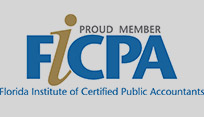It’s graduation time for the Class of 2017. Some grads studied physics, and some studied history. But how many of them can balance a checkbook and manage their finances? Here are six financial planning tips that can get your post-college life off to a great start.
- Learn how to create and live on a budget. Until you’ve implemented a budget, you won’t be able to utilize any other personal finance strategies. First, determine your monthly income and expenses. Then, subtract the former from the latter to see if you’re currently spending more than you make. Hopefully you’re spending less, which means you can start thinking about how to save or invest your money.
- Make saving your top priority. No matter how small your paycheck is, you can probably afford to save something. The amount isn’t as important as the actual discipline of saving. Set an initial goal of saving between three and six months’ worth of living expenses in a savings account. This can serve as a “rainy day” fund that you can use in case of an emergency.
- Learn the basics of investing. Saving money and investing money are not the same thing. After you’ve built up your emergency savings account, you can consider investing your money. Investing comes with the risk of losing some or all of your money of the potential of earning a higher return.
- Start thinking about retirement. It might seem far away, but you need to start thinking about retirement. The earlier you start putting money in your 401(k) plan, the more money you’ll have when you turn 65.
- Get out of debt, and stay out of debt. Excessive debt can destroy your long-term financial security. If you have student loans, set a goal to pay them off by a certain date in the future. If you’ve racked up any credit card debt, pay this off, too.
- Build a strong credit history. Your credit score is one of the most important parts of your financial life. It affects everything from whether you’re approved for a car loan or mortgage to the interest rate you’ll pay. Some employers even check credit history before extending a job offer. The best way to build a strong credit history is to pay your bills on time.






